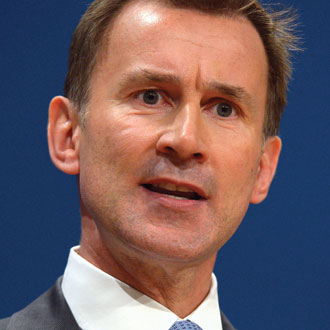NHS staff will be given ‘first refusal’ on affordable homes built on former NHS land, the health secretary has announced.
Speaking at the Conservative Party Conference, Jeremy Hunt announced the ‘Homes for NHS Staff’ scheme, which will give all NHS staff priority on living in any affordable housing that is built following the sale of NHS land.
Mr Hunt told the conference: ‘Like many people, NHS staff can also struggle to find homes near work they can actually afford.
‘So from now on when NHS land is sold, first refusal on any affordable housing built will be given to NHS employees benefitting up to 3,000 families.’
Last year, Pulse reported that GP practices West Cumbria, particularly hit by the recruitment crisis, were successful in attracting GP trainees by a scheme to offer furnished low-cost accommodation.
The use of NHS land for affordable housing for NHS staff was one of the key demand from NHS Confederation during the general election.
Danny Mortimer, chief executive of NHS Employers, said the commitment is ‘great news’ and will ‘undoubtedly’ boost recruitment and retention.
He said: ‘Housing is a critical issue for staff and their families. We look forward to continuing to contribute to actions to make the Secretary of State’s announcement a reality.’
In his speech, the health secretary also announced plans to increase the number of nurses being trained in the NHS by 25% – an increase of more than 5,000 nurse training places each year.
Mr Hunt said the increase would include an expanded number of university places as well as a tripling of the number of nursing associates.
But GP leaders have said the expansion of nurse training ‘does not solve the problem’ of the current lack of nurses and GPs in the workforce.
Dr Michelle Drage, chief executive, Londonwide LMCs said: ‘Each year in London the equivalent of fewer than 5,000 GPs and falling handle over 50 million consultations and we need over 1.5 million more GP hours to deal with current demand.
‘With practice nurse numbers falling as well, the government needs to properly fund existing services, cut red tape and manage patient expectation before pushing general practice to deliver even more with less.’
A recent Pulse survey of 860 GPs found that 12.2% of all GP positions are currently vacant, an increase from the 11.7% the year before.
She added that the health secretary’s speech ‘falls far short of what is needed to address the challenges facing general practice right now in the Capital and beyond, it contains nothing new for the vanguard of the UK healthcare system’.
Pulse October survey
Take our July 2025 survey to potentially win £1.000 worth of tokens














